These are the B Corp architecture studios dedicated to positive change
B Corp month is taking place through March, and here we highlight this important movement towards a better, more equitable world, and celebrate the UK architecture studios that have become part of the B Corporation
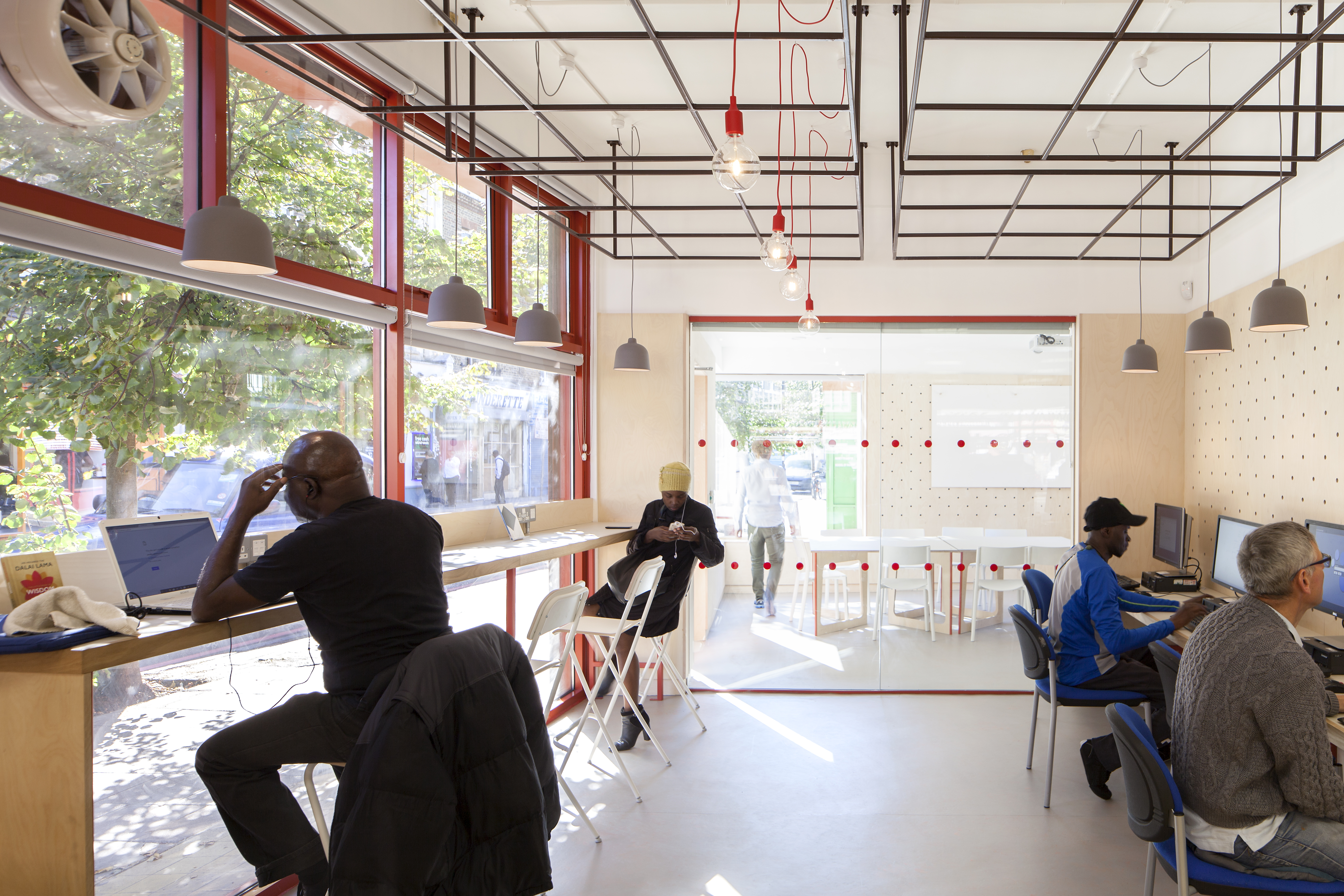
Designers should be striving to make the world an inclusive, equitable, and regenerative place. The onus should not simply lie on charities, institutions, and governments but on those that help shape our environments. According to B Lab, one way for architecture practices to help drive positive societal change is by becoming certified B Corporations – enter, the UK's B Corp architecture studios.
B Corps are organisations that must meet high social and environmental standards and make a positive impact on their stakeholders, staff, and the planet. They are ethical businesses that carefully balance their purpose and profits. Currently, there are 4,700 B Corps across 55 industries worldwide, with 11 being architecture and design practices in the UK. At present, Kennedy Woods, Stride Treglown, We Made That, Planit IE, Joseph Homes, MCM, Boutique Modern, igloo regeneration, Periscope, Useful Simple Trust and Bennetts Associates all make up the architecture B Corp community. Kennedy Woods was the first UK-based architecture practice to be fully B Corp accredited and has been leading the way for other firms to follow ever since. ‘We believe it's a great framework for any conscientious practice, with a lot of benefits if you're willing to put in the effort,’ says director of Kennedy Woods, Tom Woods.
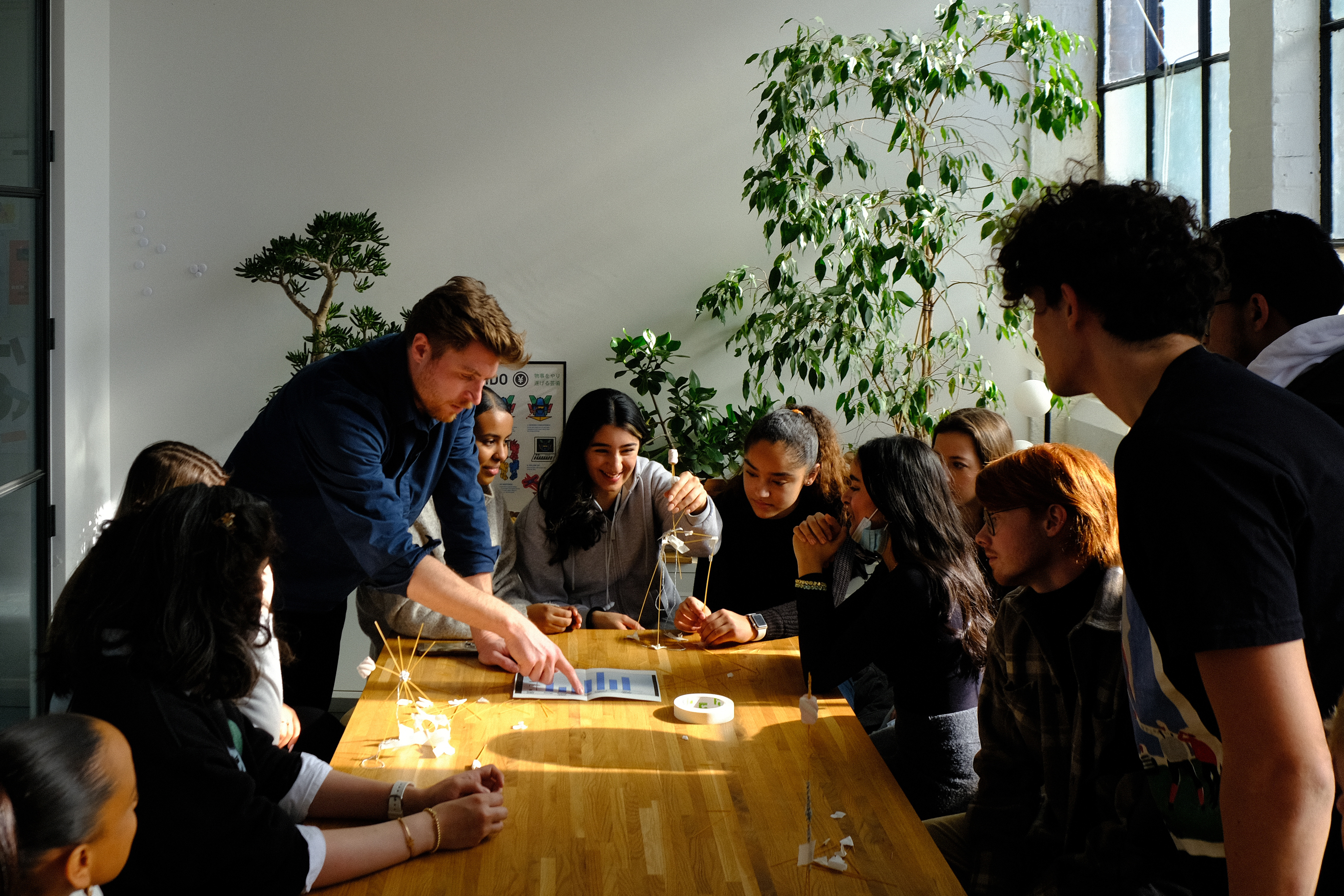
Tom Woods of Kennedy Woods leading a workshop with students at the studio's Peckham office
To become a B Corp, you must go through a vigorous process that is assessed by B Lab. The certification measures a business’s social and environmental performance, transparency, and accountability. To certify, companies need to have been running for at least 12 months and operate for profit in a competitive market. Companies must complete a B Impact Assessment that is tailored to their sector, size, and location. ‘Certification is both a holistic and granular process. You have to earn at least 80 points out of a possible 200 across five categories: governance, workers, community, environment, and customers,' explains Woods. ‘You’re then audited based on provided evidence, to confirm you’ve met the targets.’ The assessment evaluates the way a company runs its staff programmes, their social and environmental impact, and supply chain process. ‘If you’re not measuring it, it’s not real. Without benchmarks, how do you know if you’re making progress?’ he adds.
To maintain the certification companies must recertify every three years. They are also required to publish an annual impact report to share progress and goals. Being a part of the B Corp community allows organisations to get advice and support and provides them with an onslaught of networking opportunities. ‘One of the great practical benefits is the B Corp network. It’s an amazing forum for getting business, advice, and support,’ says Woods. Every action designers take has an impact on people and the environment, so by becoming a B Corp, practices can genuinely drive well-needed change
Kennedy Woods
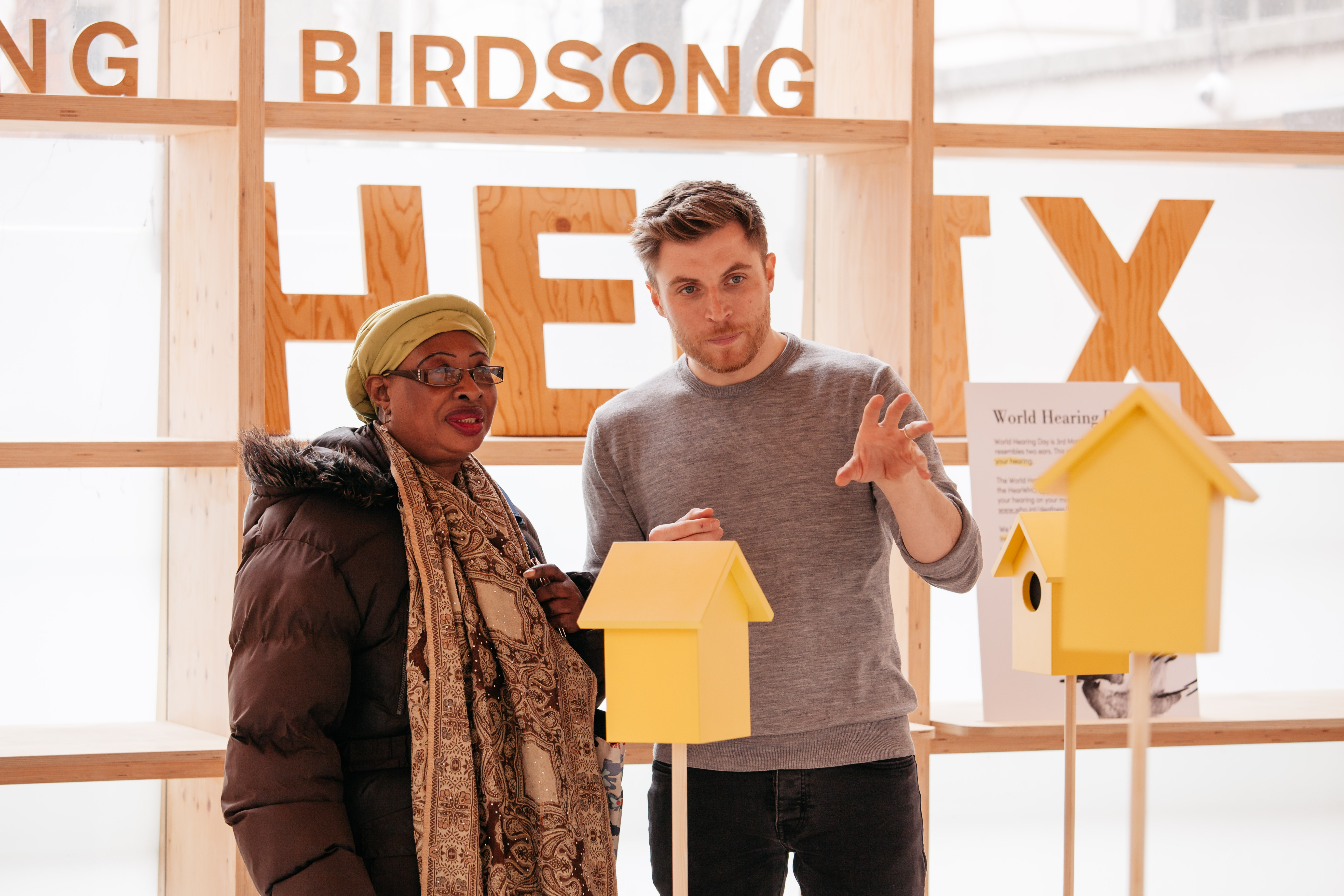
Kennedy Woods' Hearing Birdsong installation.
London-based practice Kennedy Woods was the first B Corp architecture firm in the UK. Founded by Tom Woods and Chris Kennedy, the practice prides itself as a value-led organisation. ‘Everyone trumpets the buzzwords – sustainability, transparency, employee wellbeing – but the B Corp badge is a third-party gold standard for ethical business practice,’ says Woods. For the practice, it is a badge that helps them connect with like-minded stakeholders, collaborators, and clients. ‘The B Corp status is a constant reminder for us to keep striving to improve our practice.’
We Made That
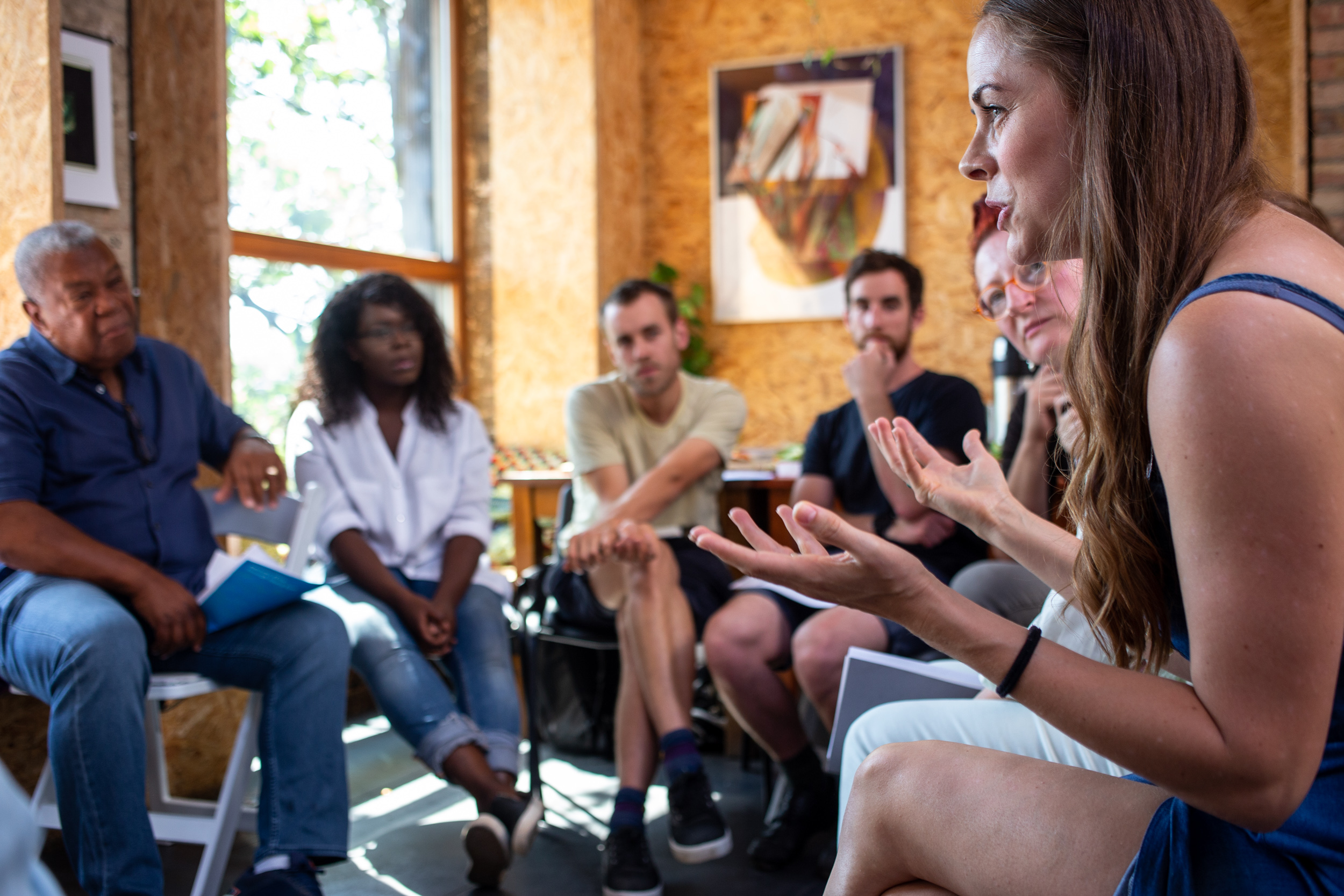
Hackney Wick and Fish Island conversations, where We Made That engaged with residents
It took multi-disciplinary architecture firm We Made That 12 months to become a B Corp. ‘It’s a public declaration of intent and external stamp that distinguishes us from other practices,’ explains co-founder Holly Lewis. The B Corp process helped the company identify a clear framework for business improvement. ‘Interestingly, it has been brought up by potential employees in recent recruiting’ she continues. ‘I think certification could do a lot for the industry - beyond the obvious environmental performance impacts - including better treatment of employees, governance and transparency.’
Stride Treglown
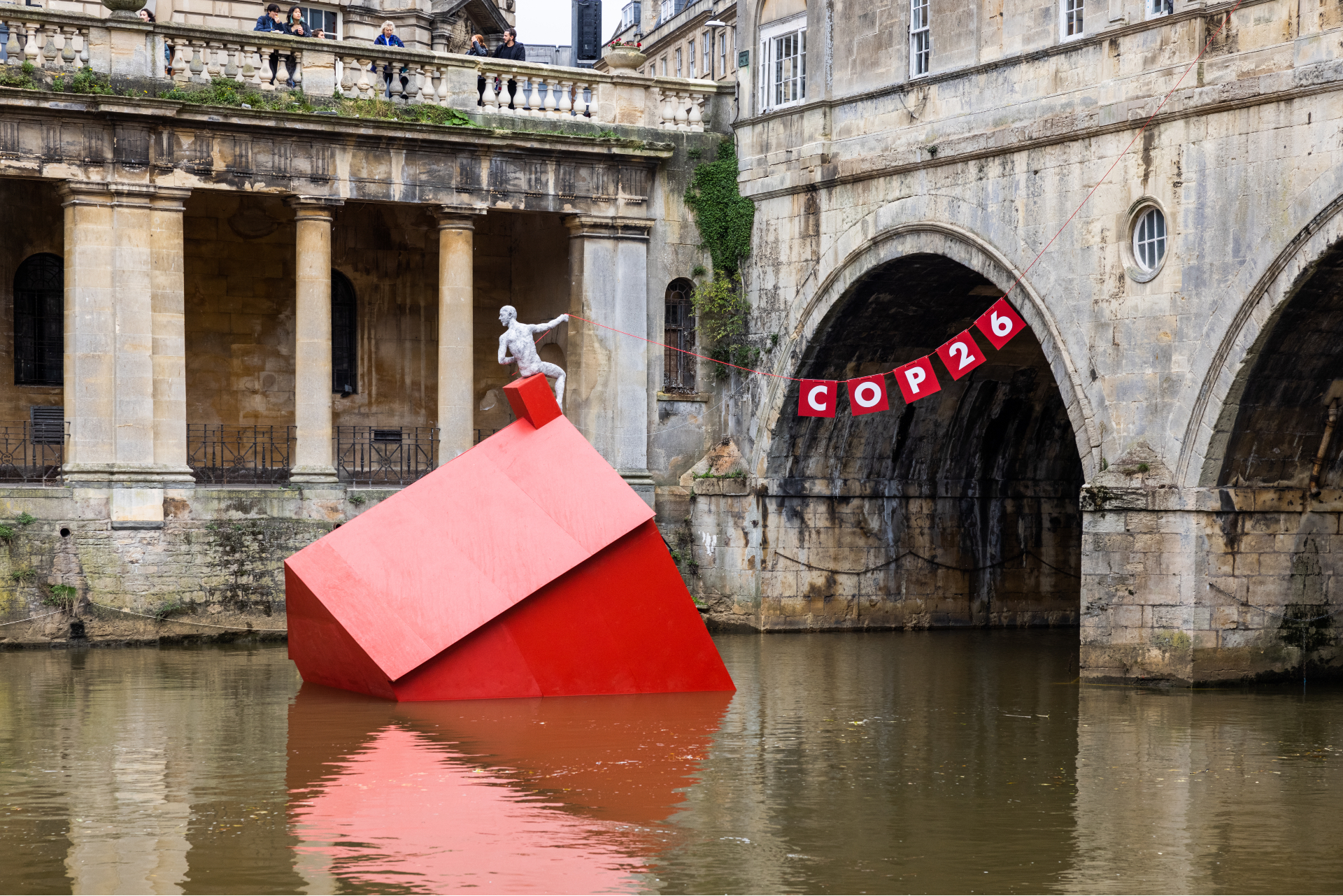
Sinking House.
For Stride Treglown the B Corp certification represents the practice's journey for excellence. ‘It’s part of a wider push to constantly improve our business,’ explains practice chair Pierre Wassenaar. It took the company six months to become fully certified. ‘The advice I’d give is to make sure you involve a wide group to help put together the responses. Our HR director, Finance Director, and Head of Social Value were all essential to the process,' he says. For Stride Treglown the certification impacts the projects they take on, their potential clients, and how the company operates.
Morris + Company
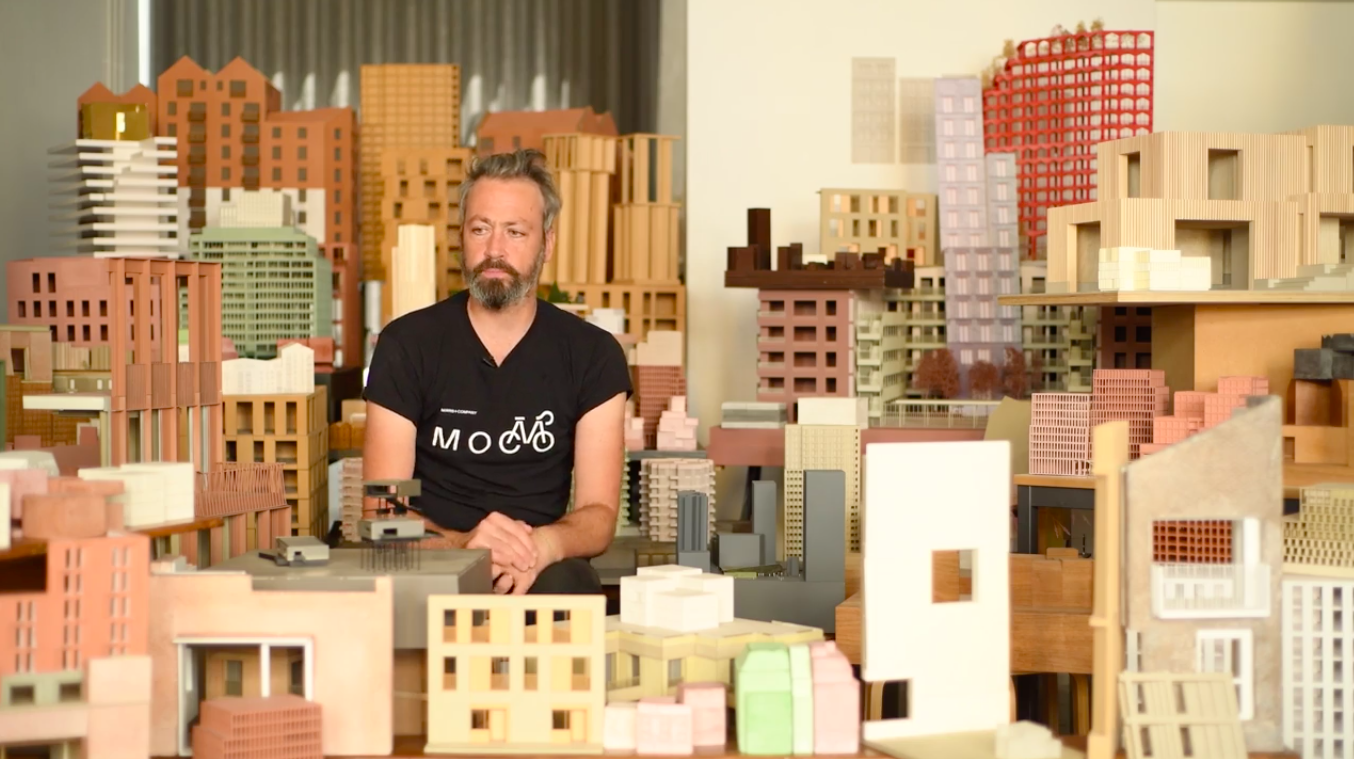
Architect Joe Morris among models at the practice studio
‘We made a commitment to become a certified B Corp some time ago,’ says director Judith Topley. The practice started the process last year and has set up working groups to focus on each of the five pillars. The firm sees the certification (which they are currently working towards) as a method to assess their everyday activities. ‘The accreditation would help us show our values to employees, clients, and the wider community,’ says Topley. 'It would allow us to be part of a broader movement for good, influence others and bring about positive change.’
INFORMATION
Receive our daily digest of inspiration, escapism and design stories from around the world direct to your inbox.
Shawn Adams is an architect, writer, and lecturer who currently teaches at Central St Martins, UAL and the Architectural Association. Shawn trained as an architect at The Royal College of Art, Architectural Association and University of Portsmouth. He is also the co-founder of the socially-minded design practice Power Out of Restriction. In 2023, POoR won the London Design Festival’s Emerging Design Medal. Shawn writes for numerous international magazines about global architecture and design and aims to platform the voices of those living across the Caribbean, Asia, and Africa.
-
 A tale of two Audis: the A5 saloon goes up against the A6 Avant e-tron
A tale of two Audis: the A5 saloon goes up against the A6 Avant e-tronIs the sun setting on Audi’s ICE era, or does the company’s e-tron technology still need to improve?
-
 Inside Christian de Portzamparc’s showstopping House of Dior Beijing: ‘sculptural, structural, alive’
Inside Christian de Portzamparc’s showstopping House of Dior Beijing: ‘sculptural, structural, alive’Daven Wu travels to Beijing to discover Dior’s dramatic new store, a vast temple to fashion that translates haute couture into architectural form
-
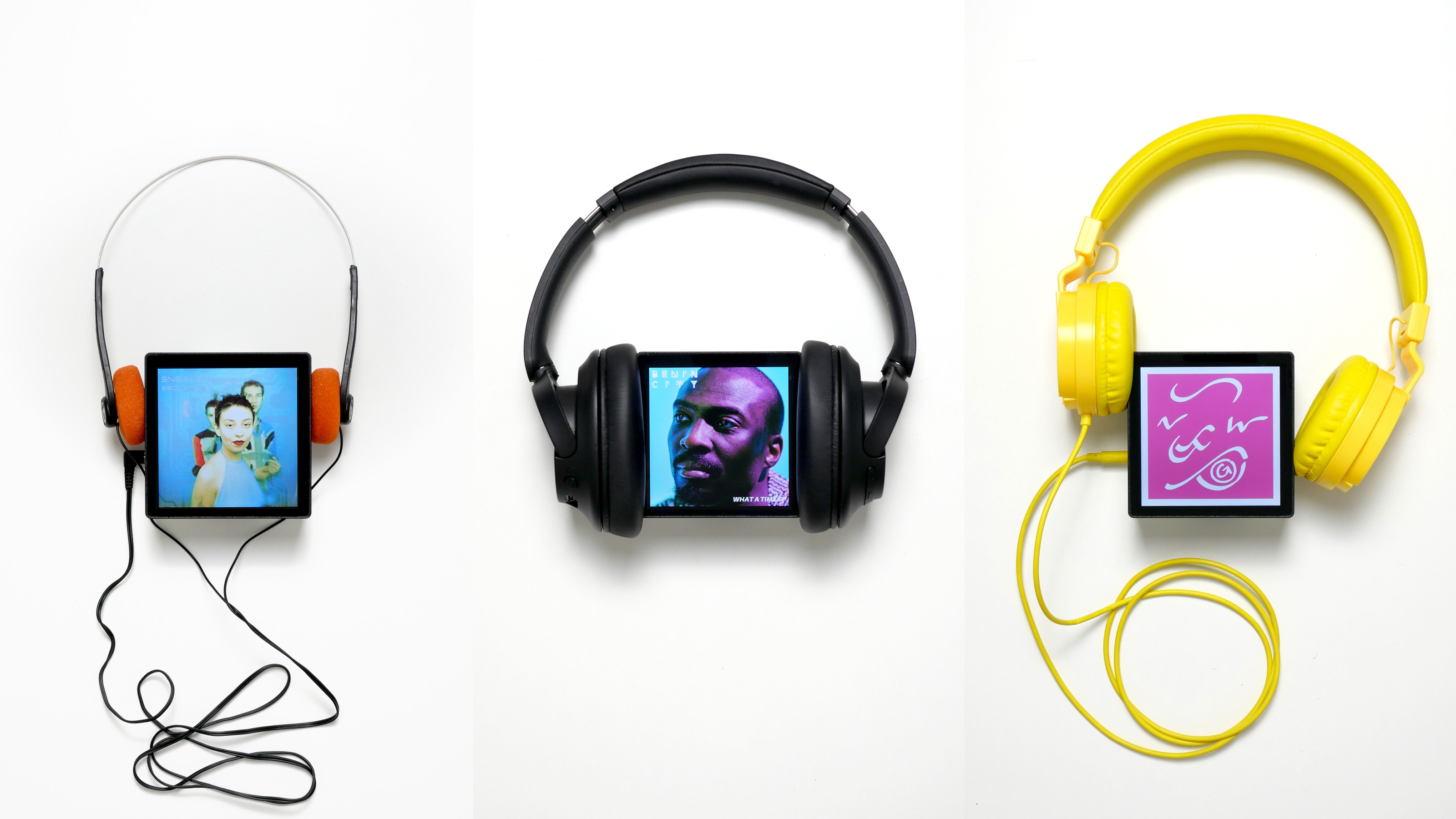 A music player for the mindful, Sleevenote shuns streaming in favour of focused listening
A music player for the mindful, Sleevenote shuns streaming in favour of focused listeningDevised by musician Tom Vek, Sleevenote is a new music player that places artist intent and the lost art of record collecting at the forefront of the experience
-
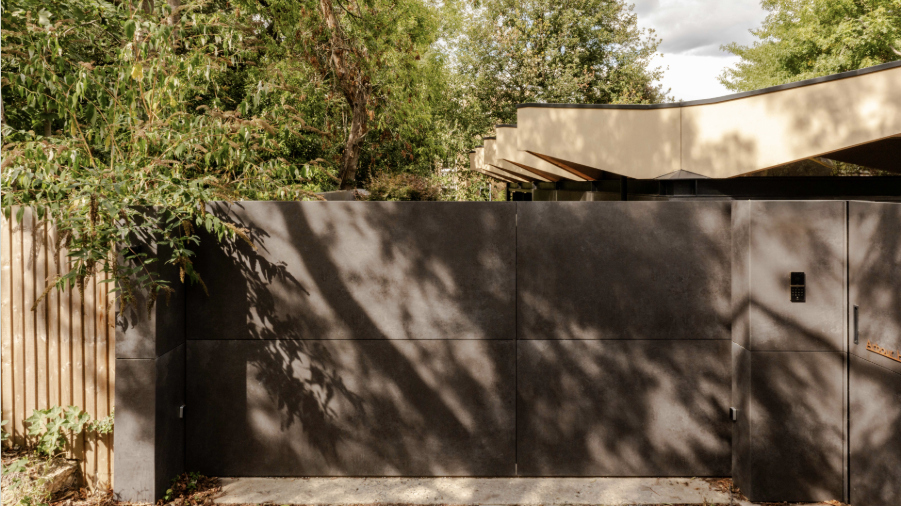 Arbour House is a north London home that lies low but punches high
Arbour House is a north London home that lies low but punches highArbour House by Andrei Saltykov is a low-lying Crouch End home with a striking roof structure that sets it apart
-
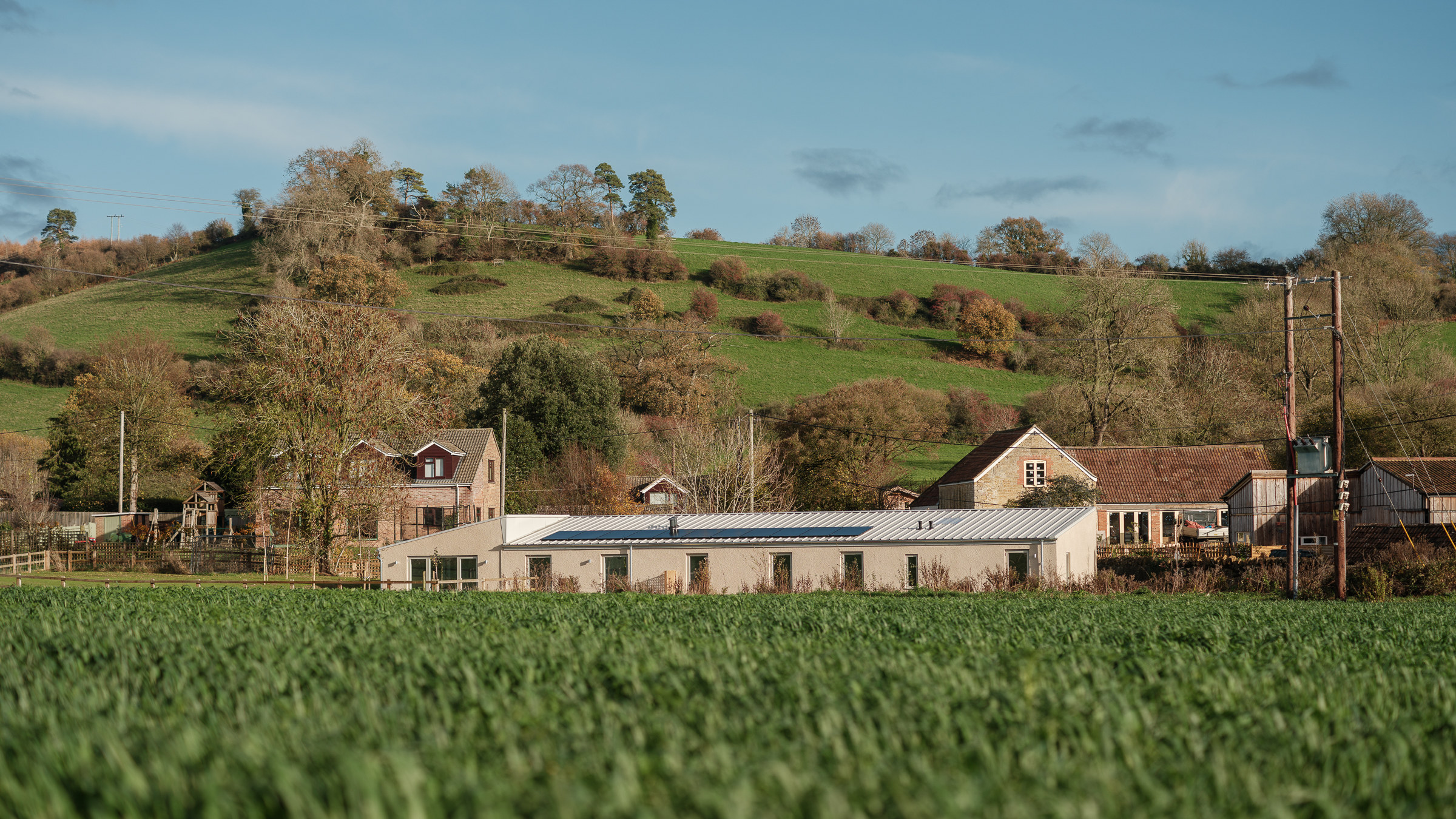 A former agricultural building is transformed into a minimal rural home by Bindloss Dawes
A former agricultural building is transformed into a minimal rural home by Bindloss DawesZero-carbon design meets adaptive re-use in the Tractor Shed, a stripped-back house in a country village by Somerset architects Bindloss Dawes
-
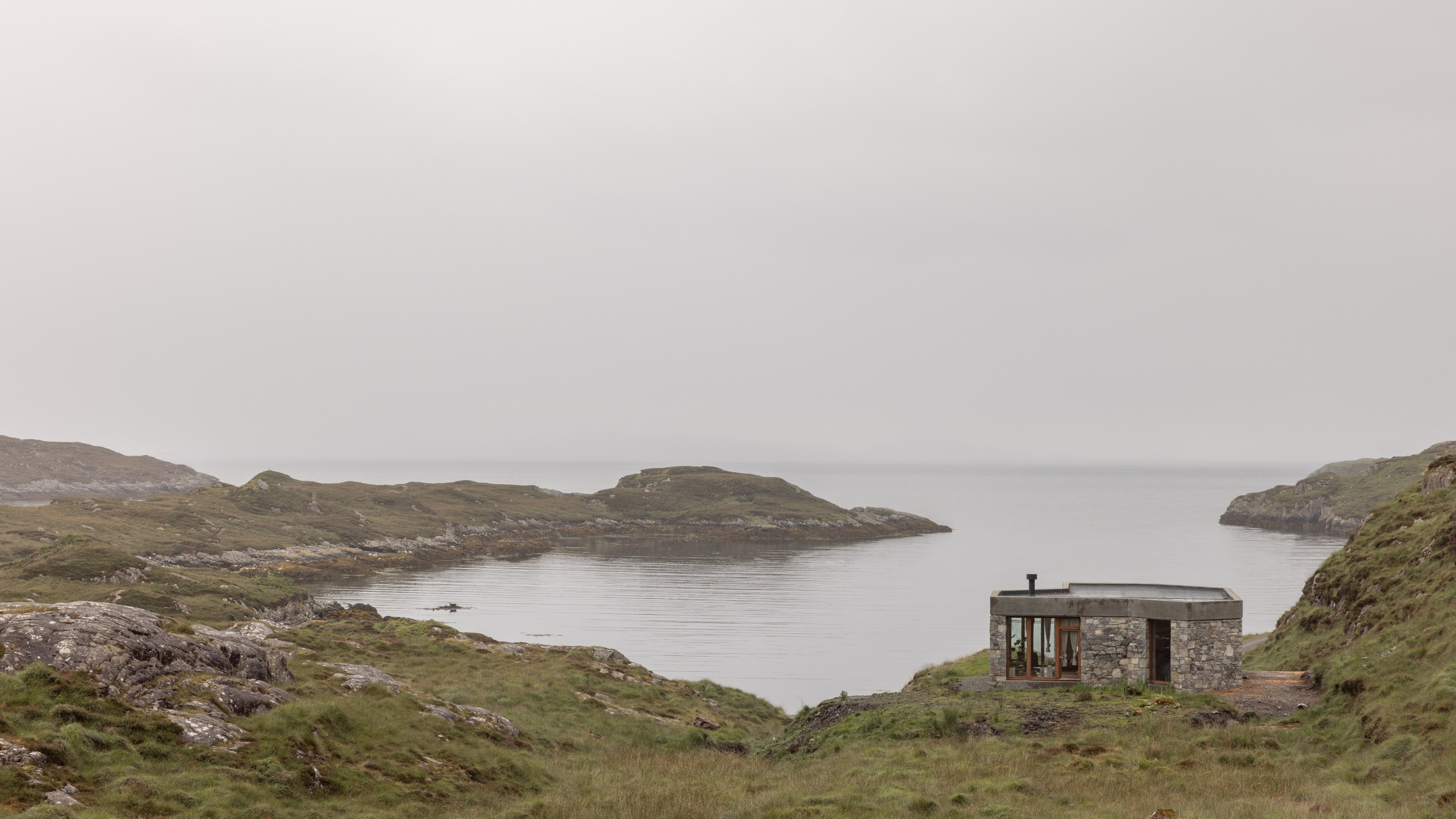 RIBA House of the Year 2025 is a ‘rare mixture of sensitivity and boldness’
RIBA House of the Year 2025 is a ‘rare mixture of sensitivity and boldness’Topping the list of seven shortlisted homes, Izat Arundell’s Hebridean self-build – named Caochan na Creige – is announced as the RIBA House of the Year 2025
-
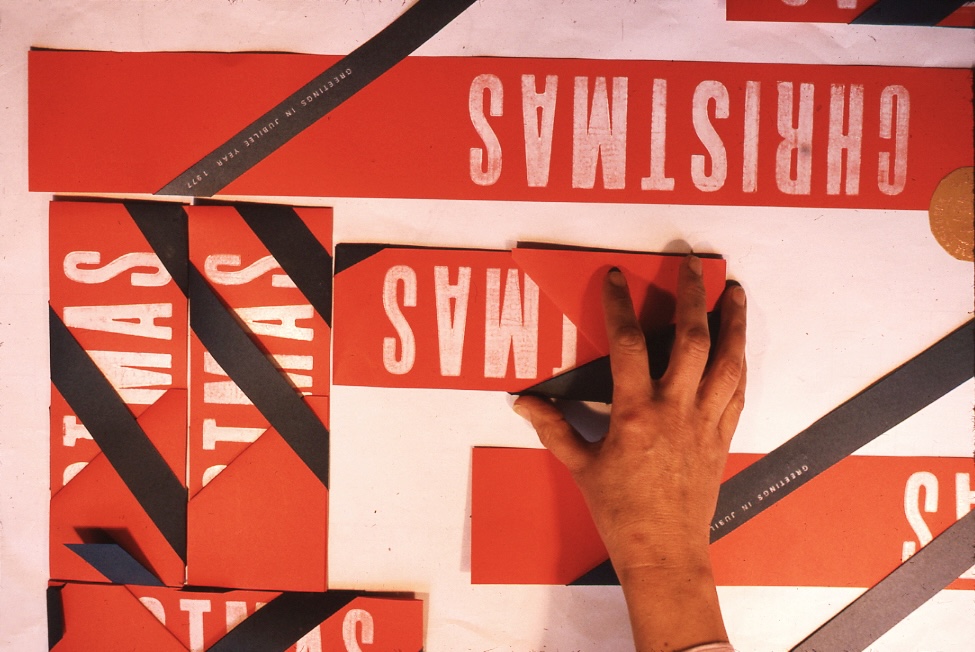 In addition to brutalist buildings, Alison Smithson designed some of the most creative Christmas cards we've seen
In addition to brutalist buildings, Alison Smithson designed some of the most creative Christmas cards we've seenThe architect’s collection of season’s greetings is on show at the Roca London Gallery, just in time for the holidays
-
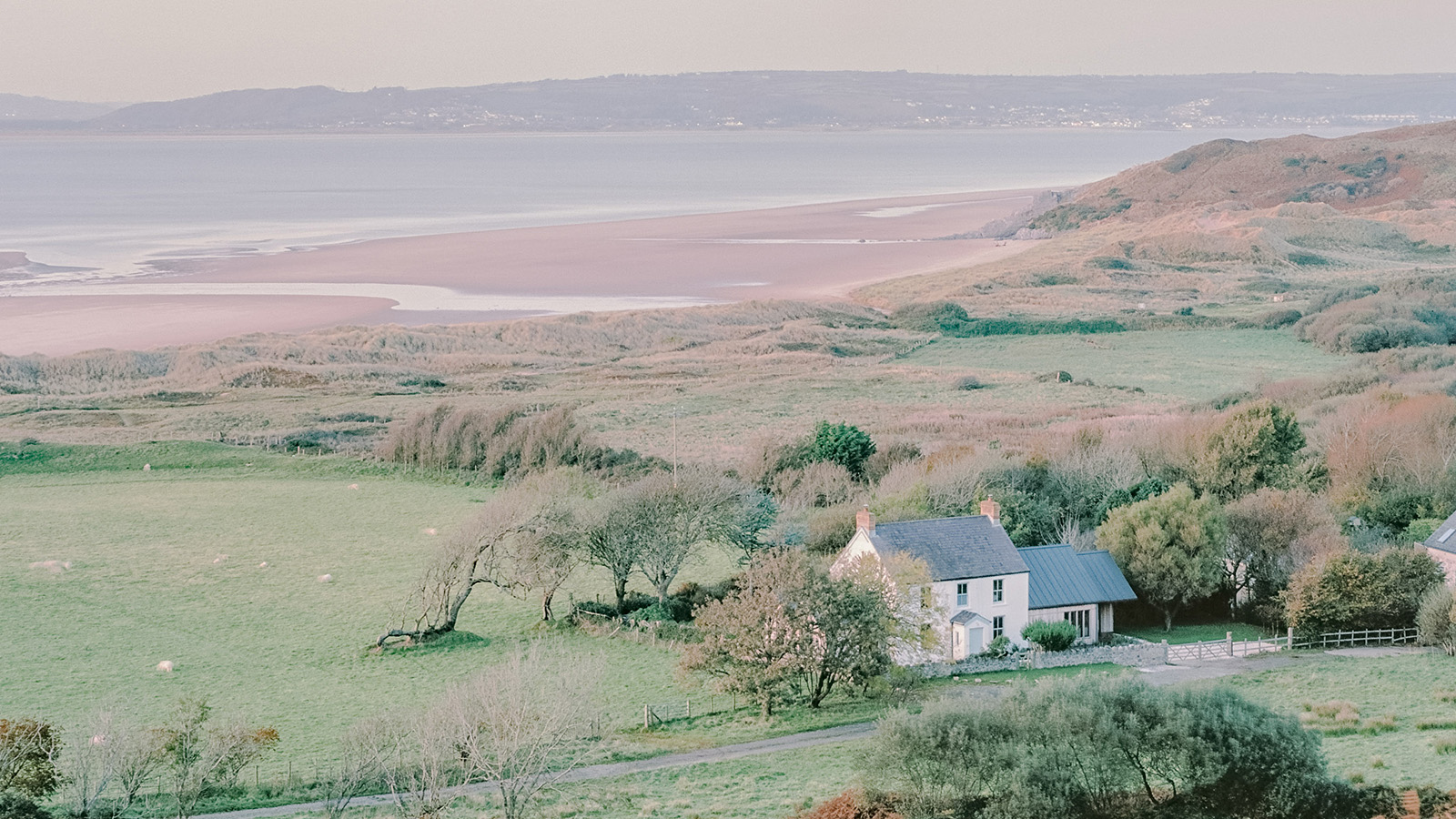 In South Wales, a remote coastal farmhouse flaunts its modern revamp, primed for hosting
In South Wales, a remote coastal farmhouse flaunts its modern revamp, primed for hostingA farmhouse perched on the Gower Peninsula, Delfyd Farm reveals its ground-floor refresh by architecture studio Rural Office, which created a cosy home with breathtaking views
-
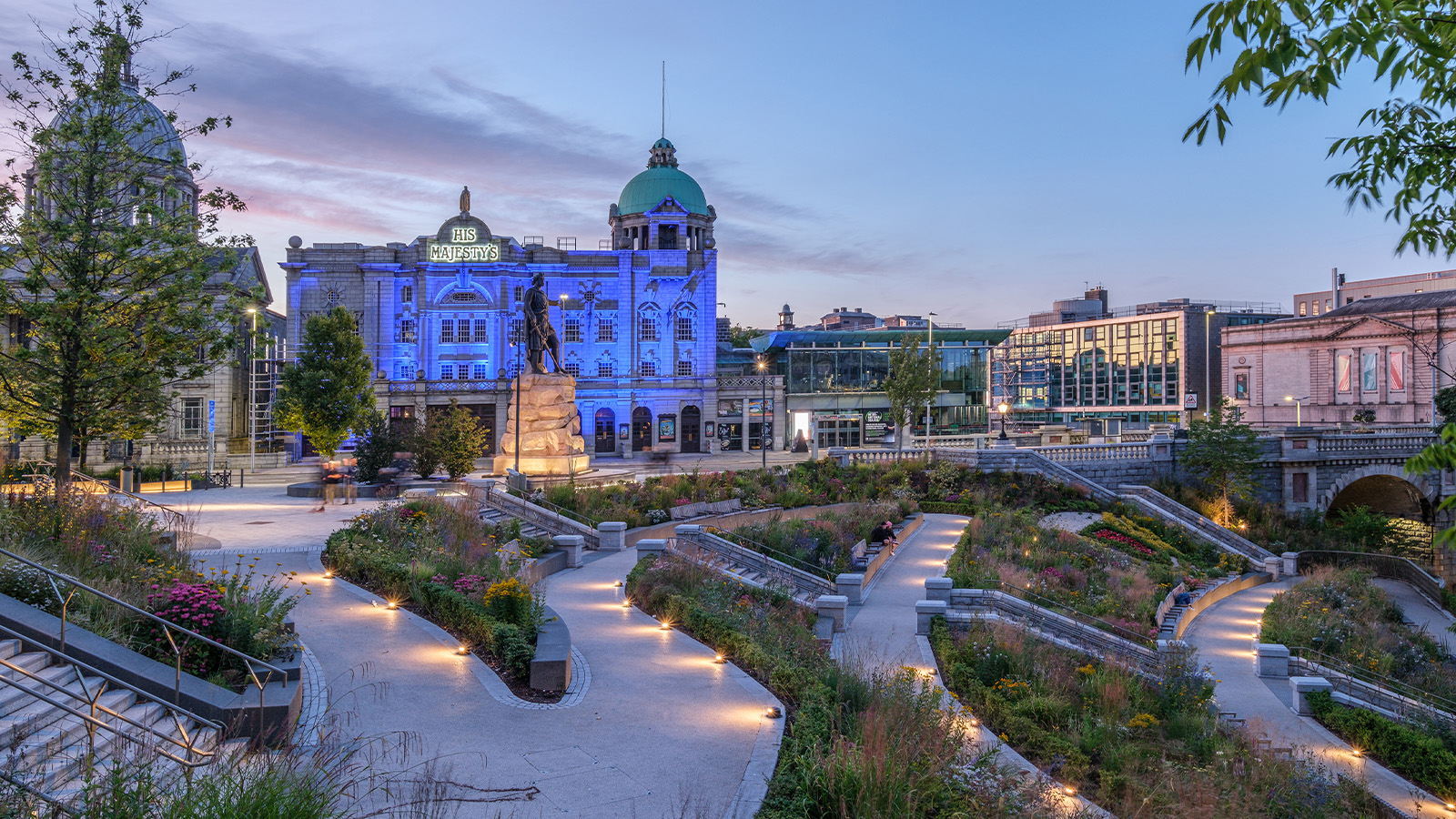 A revived public space in Aberdeen is named Scotland’s building of the year
A revived public space in Aberdeen is named Scotland’s building of the yearAberdeen's Union Terrace Gardens by Stallan-Brand Architecture + Design and LDA Design wins the 2025 Andrew Doolan Best Building in Scotland Award
-
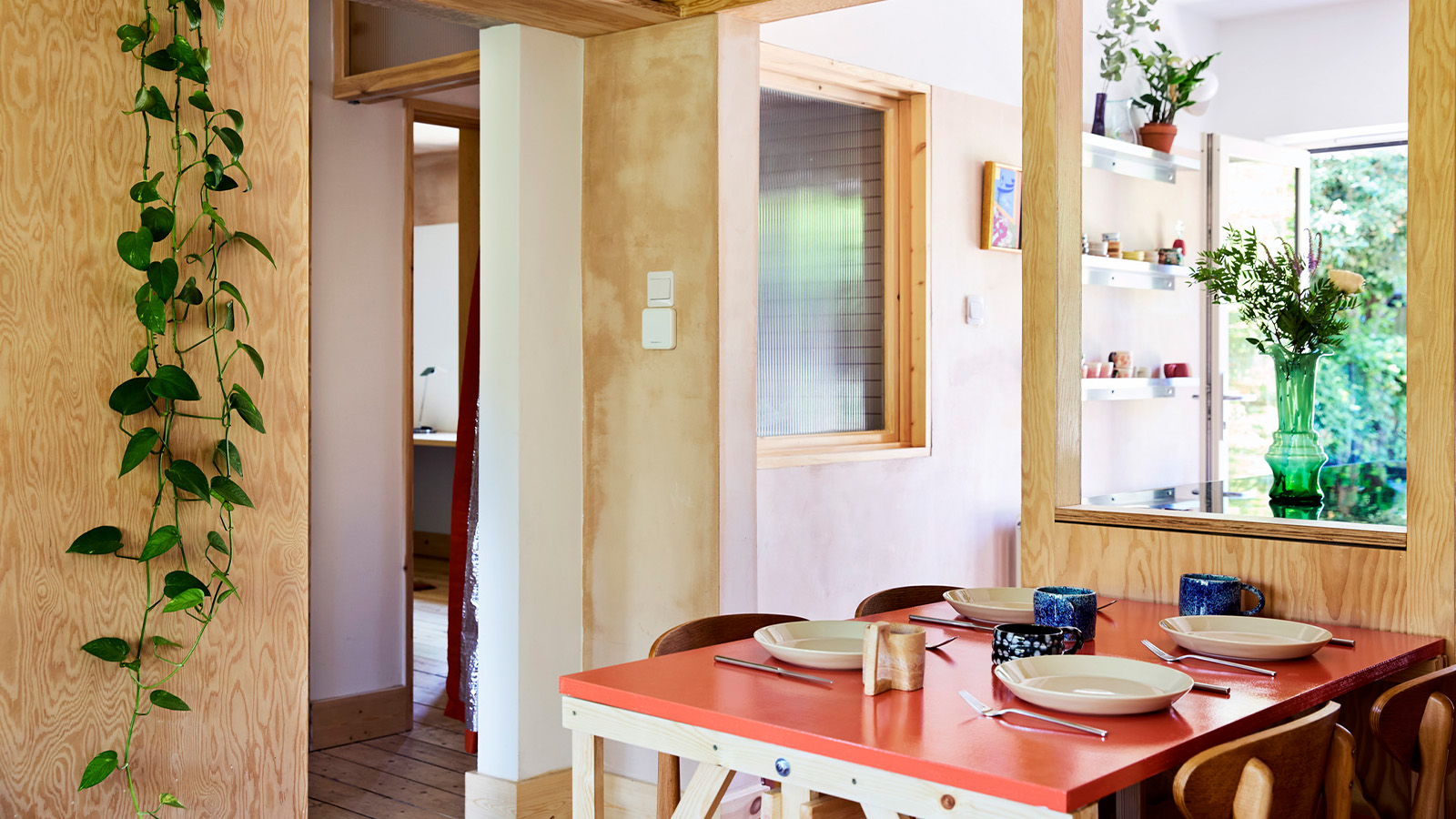 A refreshed 1950s apartment in East London allows for moments of discovery
A refreshed 1950s apartment in East London allows for moments of discoveryWith this 1950s apartment redesign, London-based architects Studio Naama wanted to create a residence which reflects the fun and individual nature of the clients
-
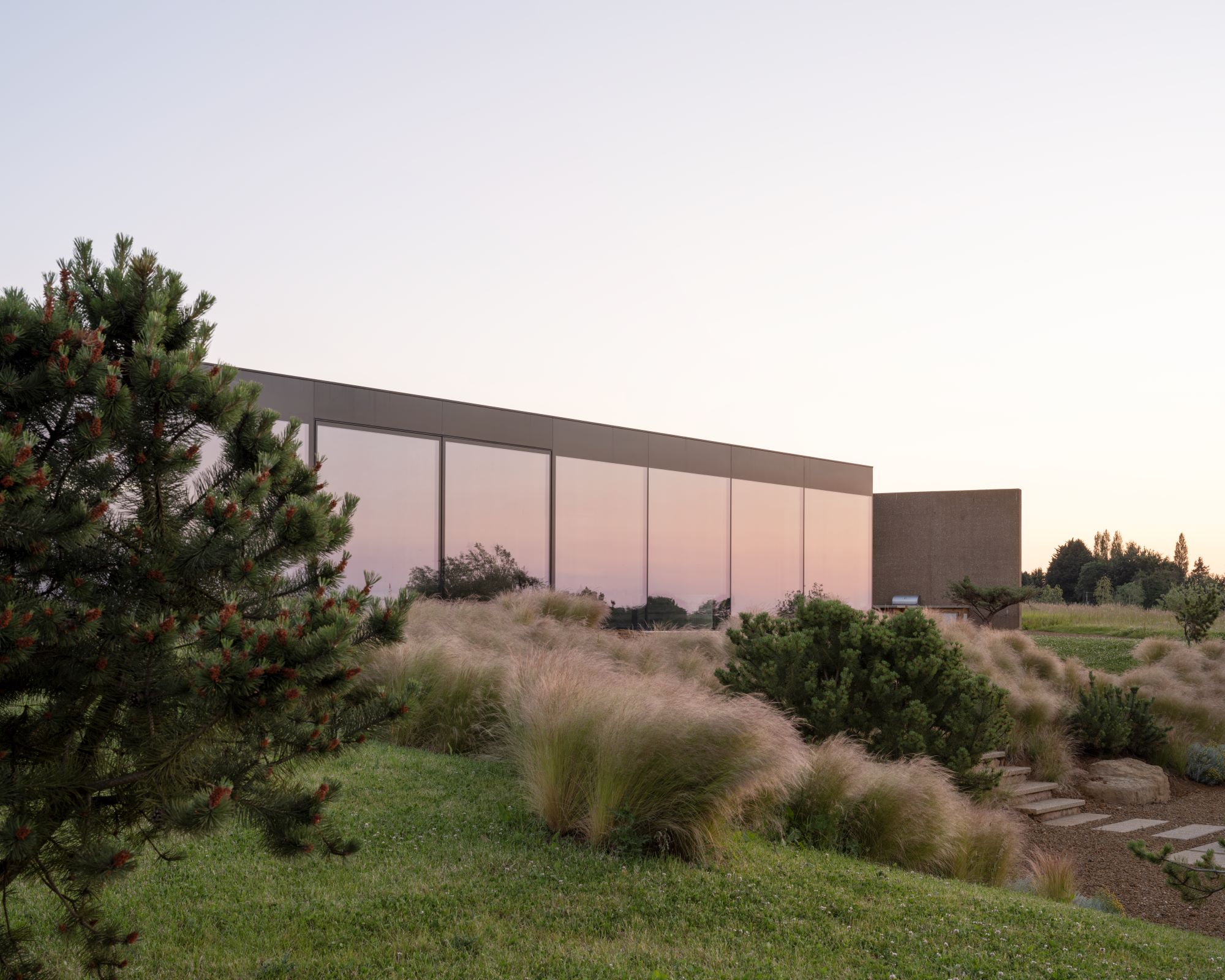 In this Cotswolds home, drama meets minimalism
In this Cotswolds home, drama meets minimalismCotswolds home Hiaven house, with interiors designed by McLaren Excell, is a perfect blend of contemporary chic and calm, countryside drama